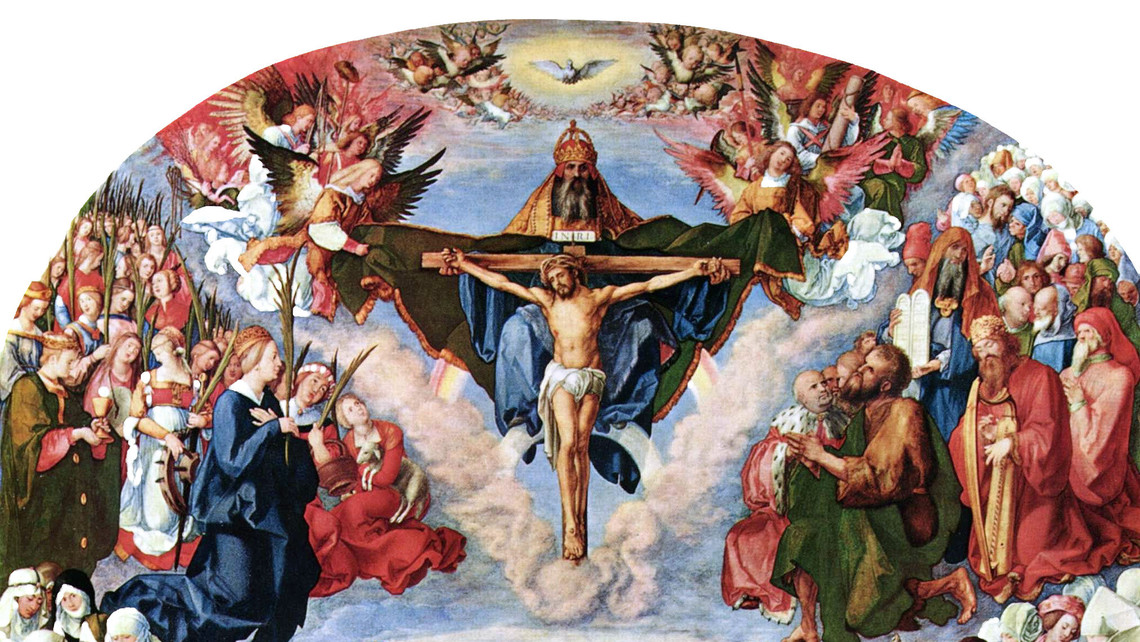
The pontificate of Pope St. John Paul II brougt with it the beginnings of implementing a renewal in the Church and society sought by the Second Vatican Council. The renewal in theology preceded his pontificate by a century or so, but he helped to bring it into the mainstream. This renewal was in many ways, also a return to important themes from the early Church but applied to today's questions. JPII saw the most important question of his time to be that of human personhood and its meaning. By the middle of the 20th century, he saw that the attitude of all too many of those asking the perennial question "who am I," had descended from one of hopeful inquiry to dismissive despair of the possibility of gaining any meaningful answer.
John Paul II's pontificate helped return many adequately docile (i.e. teachable) theologians and pastors to a renewed focus on the Trinity as the starting point for the answer to this and all of life's most important questions, just as the early Church Fathers did. What Jesus revealed about the Trinity is indeed the starting point for answering life's fundamental questions: "who am I?", "what am I made for?", "what is the meaning of life?" The theology which explains this revelation is fascinating. It begins in John's Gospel, with Jesus' explanation that He came from the Father and was returning to the Father, and only if He did return would the Holy Spirit come. This requires us to know that God is radically one in "what He is" but three in "Who He is." This unity and diversity is the foundation for what it means to be man created in God's image.
As humans, we are separate individuals but we are made for a unity of, what I would call, communion. Communion means that we are fulfilled only to the degree our lives, meaning our choices in life, reflect the communion of our divine archetype. What this means is shown by Jesus' life. What Jesus does in the created order, in the dimension of space and time, is a necessary reflection of what He does eternally in His divinity--the Eternal Word. The Father eternally gives Himself totally to the Son. The Son eternally comes forth from the Father (without change, without being caused) and in Self-emptying thanksgiving, He returns Himself to the Father. The Holy Spirit is the eternal fruit, coming forth from this eternal act of total Self-giving. The Holy Spirit is the Love of the Father and Son. God is Love, and Love is total, Self-giving. This is the definition of Communion. Jesus shows what this means for man. He gives Himself back to the Father by pouring Himself out on the Cross, returning to the Father His human life in thanksgiving and love, with no regard for what He gets out of it. This is the greatest love!
We are made in this image. Therefore, we fulfill ourselves only to the degree with love in this meaning of love. We must give ourselves totally to God, in everything we think, do and say. We must give ourselves to others, by acting for their integral good, regardless of what we get out of it. Only in this way, do we fulfill ourselves as human persons. This is what I call the Trinitarian paradox. We become more and more who are to be, the more and more we give ourselves away selflessly. It is a paradox because we live in a society that says we are fulfilled only by taking, experiencing, consuming. While these things temporarily fill "what" we are, when we pursue them selfishly they to not fulfill "who" we are. Rather, they empty us more and more of who we are made to be.
Who am I? I am made to be a child of the Father made in the image of the Son for thanksgiving, for total, self-emptying love. The fruit of living like this is a restful, peaceful joy--even in the midst of turmoil. This Trinity Sunday, let us pray for the wisdom to see this, the strength and courage to live it out, and the joy which comes from doing so.




